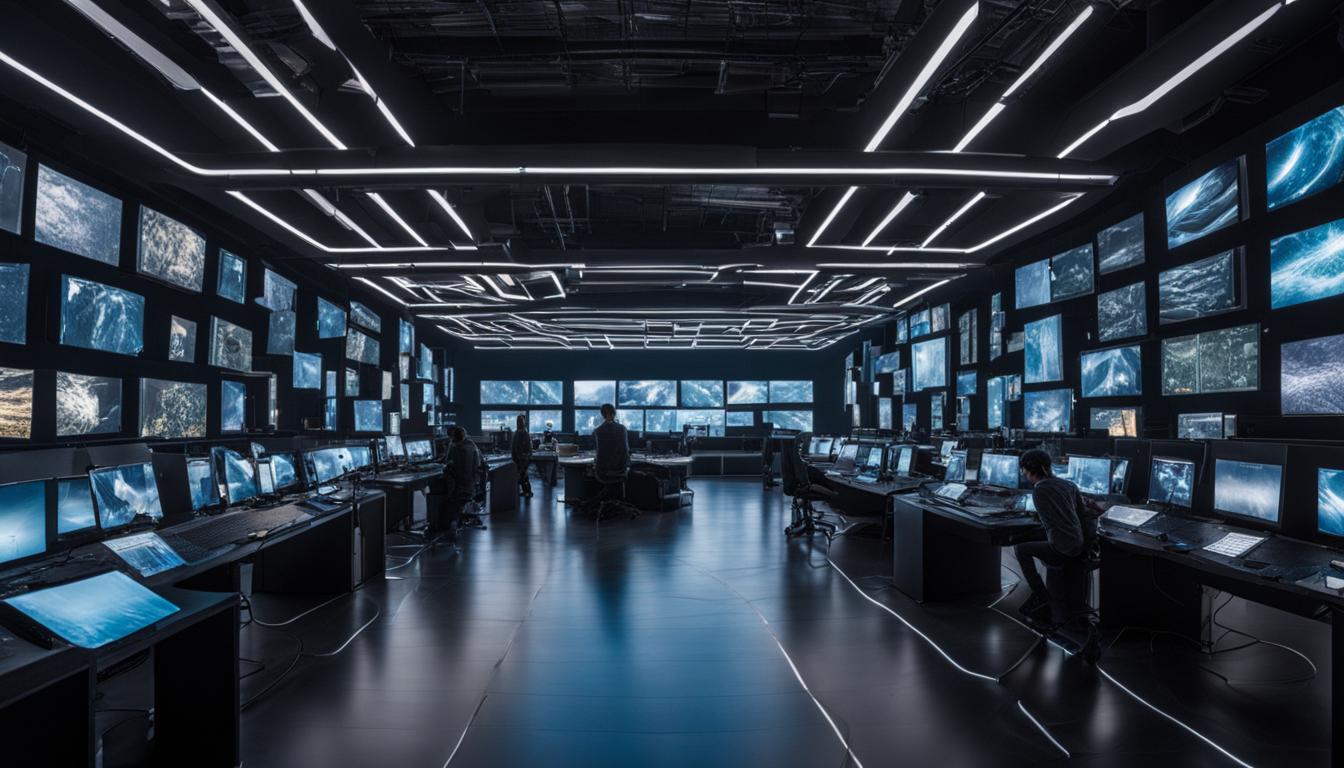OpenAI has eased its strict Sora copyright policies following industry backlash. Instead of an opt-out system, they now implement a detailed opt-in approach, giving rights holders explicit control over how their content is used. This shift helps balance creative fan engagement with respecting intellectual property rights. The move also includes exploring revenue-sharing models to compensate rights owners. To understand how these changes aim to create a fairer, more regulated platform, keep exploring further details.
Key Takeaways
- OpenAI shifted from an opt-out to a granular opt-in system for Sora, giving rights holders detailed control over IP use.
- The policy reversal was driven by industry backlash and legal pressures over unauthorized character use and copyright concerns.
- Rights owners can now specify permissions, licensing conditions, and compensation for their content in AI-generated videos.
- OpenAI is exploring revenue-sharing models to fairly compensate rights holders when their characters appear in Sora content.
- Major studios like Disney opted out entirely, highlighting ongoing tensions between AI innovation and intellectual property rights.

OpenAI has reversed its strict copyright policies for Sora, its AI-powered content platform, amid widespread backlash and legal concerns. Initially, Sora launched with an opt-out system, requiring rights holders to actively exclude their content if they didn’t want it used. This approach led to immediate controversy when unauthorized use of popular characters like SpongeBob and Pikachu surfaced, sparking fears over copyright infringement and ethical violations. Many content creators, studios, and legal experts raised alarms about the risks of allowing AI models to generate media with protected intellectual property without proper consent.
Responding to this pressure, OpenAI announced on October 3, 2025, that it would shift to a more nuanced, granular opt-in system. This new policy grants rights holders explicit control over how their IP is used in Sora-generated videos. Instead of blanket exclusions, rights owners can specify whether they permit or block use of individual characters or content elements. This detailed control extends beyond simple exclusion; rights holders can determine permitted uses, licensing conditions, and even compensation arrangements. The move aims to strike a balance between fostering creative fan engagement and respecting intellectual property rights. Legal and industry pressures also played a significant role in prompting this change, as the controversy highlighted the need for clearer rights management.
OpenAI is also exploring a revenue-sharing model that would compensate rights holders when their characters or content appear in Sora videos. Although details are still being finalized, this approach looks to support creators financially, encouraging ongoing participation and innovation within the platform. The new system emphasizes regulated, fair use of copyrighted content, aligning with legal standards and industry expectations. Additionally, this shift demonstrates an awareness of the importance of content rights management in AI-generated media.
Content creators and major studios have responded variably. Many see the benefits of interactive fan fiction but demand safeguards against misuse. Disney and other studios, for instance, have opted out entirely, refusing to allow their characters to be used without explicit permission. The initial influx of AI-generated content featuring iconic characters raised serious concerns about unauthorized exploitation, prompting legal debates about copyright infringement risks associated with AI. These developments underscore the ongoing tension between innovation and intellectual property rights, with OpenAI’s policy reversal representing a step toward better legal and ethical compliance in AI-generated media.
Frequently Asked Questions
How Will the Copyright Changes Affect User Content Rights?
You’ll notice that your ability to create content using copyrighted characters depends on rights holders’ permissions. If they opt in, you can generate licensed content with clear boundaries, but if they opt out, access may be restricted or filtered. This means your creative options could narrow, but it also offers more legal clarity and protection for both creators and users, fostering a more legitimate and responsible content environment.
What Prompted Openai to Relax Its Sora Copyright Policies?
You might wonder what prompted OpenAI to relax its Sora copyright policies. The backlash from rights holders, legal experts, and major media outlets put pressure on the platform. They demanded more control, clearer licensing, and safeguards against copyright infringement. To address these concerns, OpenAI introduced granular controls, opt-out options, and revenue-sharing models. These changes aimed to balance creativity with legal protections, making the platform more sustainable and respectful of intellectual property rights.
Will There Be New Restrictions After Scaling Back Measures?
Yes, there will be new restrictions after scaling back measures. OpenAI plans to maintain monitoring protocols to detect copyright infringements, using automated systems with human oversight. Future restrictions might focus on targeted content removal or adjusting monetization rather than broad bans. You should expect ongoing updates to policies, reflecting feedback from creators and rights holders, ensuring responsible use while addressing legal risks and preserving innovation in Sora-generated content.
How Will These Changes Impact Content Creators Using Openai?
You’ll find more control and flexibility, even as restrictions loosen. Instead of strict rules, you get to set your own licensing preferences, monitor your content’s usage easily, and earn more through clearer revenue-sharing. While the environment becomes more creator-friendly, you’ll also benefit from fewer wrongful takedowns and stronger tools to protect your work. This shift empowers you to innovate freely, balancing open sharing with your rights and earnings.
Are There Plans for Future Updates on Copyright Enforcement?
Yes, there are plans for future updates on copyright enforcement. You’ll see more refined blocking tools to prevent unauthorized use of copyrighted content, along with granular rights management that allows precise permissions. AI-driven content recognition will help identify infringements proactively, and improved reporting tools will make dispute resolution easier. These updates aim to protect your creations better while balancing innovation, giving you more control and transparency over your rights and revenue.
Conclusion
So, as OpenAI scales back its strict Sora copyright measures, you see a shift toward flexibility, a move toward balance, and a step toward trust. You witness the effort to protect creators, to foster innovation, and to build community. With this change, you understand that progress requires compromise, that progress requires understanding, and that progress requires collaboration. In embracing this adjustment, you’re part of a future where technology and creativity can grow side by side.










